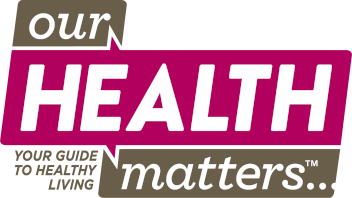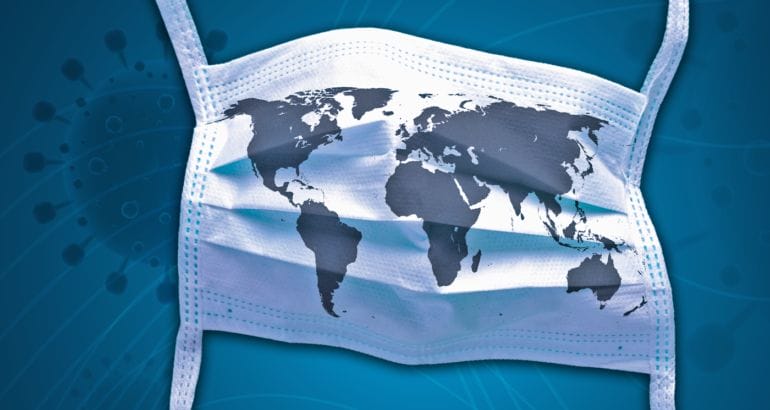By Jeanene Dunn, OHM Staff
As Americans gathered in large crowds to usher in the new year, half a world away, a deadly virus was sickening people by the thousands and overwhelming hospital emergency rooms. Even as Americans continued to work, play and gather, the virus was spreading rapidly from one country and continent to another, infecting people by the hundreds of thousands and killing hundreds of people every day.
Fast forward to the present and this mysterious, highly contagious virus, is now known to everyone as COVID-19.
As the number of infected people and lives lost steadily climbed, cities and states made the unprecedented decision to shut down non-essential businesses and close schools in order to prevent more widespread infection, illness and death.
As a result, millions of people have found themselves suddenly without a paycheck. As of the week ending on May 1st, more than 30 million people had applied for unemployment benefits in the United States.
What exactly is COVID-19?
According to the Missouri Department of Health and Senior Services, “the virus has been named ‘SARS-CoV-2’ and the disease it causes has been named ‘coronavirus disease 2019’ (abbreviated ‘COVID-19’).”
You may have seen COVID-19 also referred to as the novel coronavirus. The virus is referred to as novel because it is a new disease for which there is no approved, effective vaccine or treatment. Coronaviruses are not new to humans or animals, but this particular strain is new.
The National Institute of Allergy and Infectious Diseases states:
“Coronaviruses are a large family of viruses that usually cause mild to moderate upper-respiratory tract illnesses, like the common cold. However, three new coronaviruses have emerged from animal reservoirs over the past two decades to cause serious and widespread illness and death.
There are hundreds of coronaviruses, most of which circulate among such animals as pigs, camels, bats and cats. Sometimes those viruses jump to humans — called a spillover event — and can cause disease. Four of the seven known coronaviruses that sicken people cause only mild to moderate disease. Three can cause more serious, even fatal, disease.
- SARS coronavirus (SARS-CoV) emerged in November 2002 and caused severe acute respiratory syndrome (SARS). That virus disappeared by 2004.
- Middle East respiratory syndrome is caused by the MERS coronavirus (MERS-CoV). Transmitted from an animal reservoir in camels, MERS was identified in September 2012 and continues to cause sporadic and localized outbreaks.
- The third novel coronavirus to emerge in this century is called SARS-CoV-2. It causes coronavirus disease 2019 (COVID-19), which emerged from China in December 2019 and was declared a global pandemic by the World Health Organization on March 11, 2020.”

COVID-19 symptoms
People with COVID-19 have had a wide range of symptoms reported — ranging from mild symptoms to severe illness. Symptoms may appear 2-14 days after exposure to the virus.
People with these symptoms or combinations of symptoms* may have COVID-19:
- Cough
- Shortness of breath or difficulty breathing
Or at least two of these symptoms:
- Fever
- Chills
- Repeated shaking with chills
- Muscle pain
- Headache
- Sore throat
- New loss of taste or smell
- Children have similar symptoms to adults and generally have mild illness.
When to contact your healthcare provider
If you have any of these four warning signs* seek medical attention immediately
- Trouble breathing
- Persistent pain or pressure in the chest
- New confusion or inability to arouse
- Bluish lips or face
*This list is not all inclusive. Please consult your medical provider for any other symptoms that are severe or concerning to you. Call 911 if you have a medical emergency. Notify the operator that you have, or think you might have COVID-19. If possible, put on a cloth face covering before medical help arrives.
 Who can get COVID-19?
Who can get COVID-19?
Any person of any age group can become infected with COVID-19. Adults 65 years and older, and persons who have underlying medical conditions such as heart disease, diabetes, asthma, lung disease or compromised immune systems are at a higher risk for developing serious complications from COVID-19.
Some people may be asymptomatic
This means that not everyone who is infected with COVID-19 has symptoms. These persons can pass the virus to someone else without even knowing it. They may not get sick themselves, but the person(s) they came in contact with may be at high risk for complications from the virus.
That’s why it’s important to limit personal contact to reduce the chance of possible exposure to the virus. If you have to go out in public:
- Wear a cloth face mask that covers the nose and mouth.
- Wear latex gloves.
- Maintain a distance of six feet between yourself and others.
- When you return home, wash your hands for 20 seconds and dispose of your mask and gloves.
SOCIAL DISTANCING helps to limit the spread of the COVID-19 virus. It is known that the virus can be spread through close person-to-person contact (less than six feet). When an infected person coughs, sneezes or speaks, droplets of the virus can spread to others and infect them. Public health experts have consistently stressed the importance of social distancing to help curb the spread of the virus.
During the height of the pandemic, state and local governments in Kansas and Missouri have issued formal Stay at Home orders that have now extended into May. These orders are issued in coordination and after consultation with state and city public health officials to help reduce the infection rate and slow the spread of the virus.
The new normal
Right now, it can seem like each day just melds into the other, with one bad news story after another. There is plenty of good news. People are finding new ways to connect online to work, entertain, share cooking tips, sew masks for healthcare workers and others, learn and keep one another uplifted in a positive way. And, there are countless stories of neighbors helping neighbors from a safe distance.
Be encouraged — this will pass.
There are reasons to be encouraged in this extraordinary time we find ourselves living in. Because COVID-19 impacts people differently — mild to moderate symptoms — every case does not require hospitalization. More and more images of people being wheeled out hospital doors to great applause from doctors and nurses is inspiring and encouraging.
Researchers and doctors are working around the clock to develop more testing and conduct clinical trials to discover vaccines and effective treatments for COVID-19. The end goal is to not only treat the virus, but to prevent it. We can all take comfort in knowing that these times will not last forever and will pass.
As more information becomes available every day, stay on top of it all and learn more at https://www.coronavirus.gov. In the meantime, stay healthy, stay home and stay hopeful.
SOURCES:
Kansas Department of Health and Environment
Missouri Department of Health and Human Services
National Institutes of Allergy and Infectious Diseases
Centers for Disease Control and Prevention
How can I protect myself from COVID-19?
Wash your hands often with soap and water for at least 20 seconds:
- After you have been in a public place.
- After coughing, blowing your nose or sneezing.
If soap and water are not readily available, use a hand sanitizer that contains at least 60% alcohol. Cover all surfaces of your hands and rub them together until dry.
Clean and disinfect frequently touched surfaces daily. This includes countertops, phones, desks, light switches, sinks, toilets, faucets, keyboards, doorknobs and sinks. If surfaces are dirty, clean with soap and water first and then use a common EPA-registered household disinfectant.
- Avoid touching your eyes, nose and mouth with unwashed hands.
- Cover coughs and sneezes.
- Avoid close contact with people who are sick.
- Stay home if you can.





